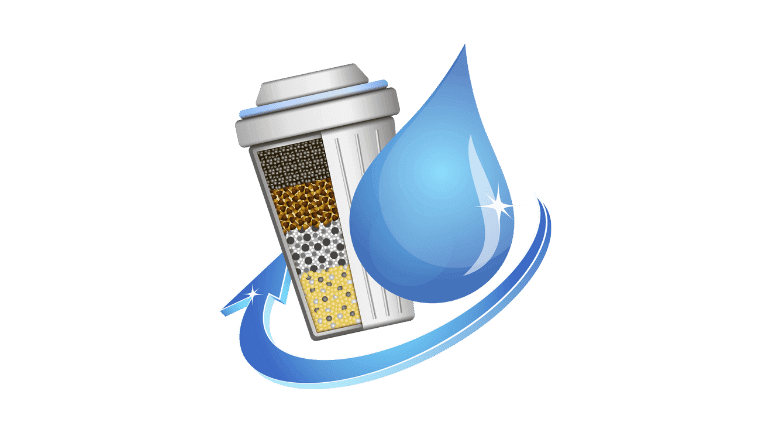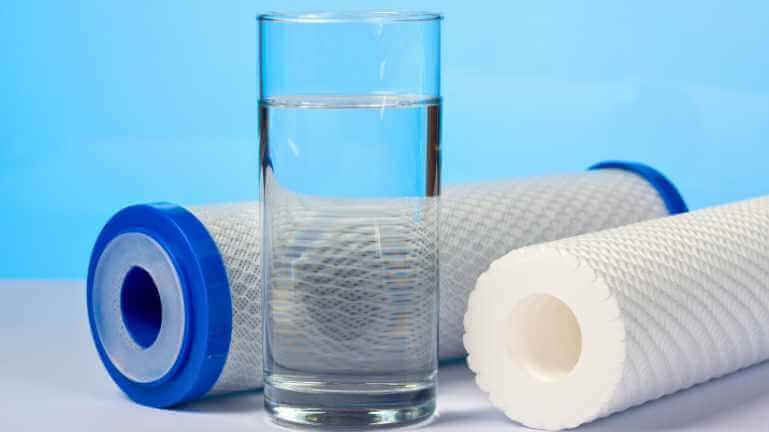Yes, it is possible to filter radioactive water using specialized filtration methods. Radioactive contaminants can be effectively removed by employing advanced filtration systems.
Water contamination is a critical concern worldwide, and radioactive substances pose a significant threat to the environment and human health. The aftermath of nuclear disasters, industrial activities, or even natural occurrences can result in water sources becoming contaminated with radioactivity.
In such situations, it becomes crucial to find effective solutions for water purification. This article explores the viability of filtering radioactive water and the methods employed to achieve this. By understanding the filtration techniques, their benefits, and their limitations, we can protect our water resources and mitigate the risks associated with radioactive contamination. So, let’s delve into the world of radioactive water filtration and explore the options available to ensure clean and safe drinking water.
Understanding Radioactive Contamination
Filtering radioactive water is possible, as certain filtration techniques like reverse osmosis and activated carbon can effectively remove radioactive particles. Understanding how these filters work can help in ensuring the safety of water for consumption and other purposes.
In today’s modern world, concerns about radioactive contamination have become increasingly prevalent. Radioactive substances can find their way into our environment through various means, including accidents at nuclear power plants, mining activities, medical treatments, and even natural sources such as rocks and soil. The potential health risks associated with exposure to radioactive water are a cause for great concern. However, with the right knowledge and effective filtration methods, we can ensure that our drinking water is safe from these harmful contaminants.
Common Sources Of Radioactive Contamination
Radioactive contamination can occur as a result of various activities and natural processes. It is essential to understand the common sources to accurately assess the risks associated with radioactive water. Here are some common sources:
- Nuclear accidents: Accidents at nuclear power plants, such as the infamous Chornobyl and Fukushima disasters, can release significant amounts of radioactive substances into the environment.
- Mining activities: Certain types of mining, including uranium mining, can lead to the release of radioactive materials into water sources.
- Medical treatments: Some medical procedures, like radiation therapy for cancer treatment or radioactive isotopes used in diagnosing diseases, can result in the presence of radioactive substances in the water used during these treatments.
- Natural sources: Radioactive elements can naturally occur in rocks and soil. As water interacts with these materials, it can absorb and carry radioactive contaminants.
Potential Health Risks Associated With Exposure To Radioactive Water
Exposure to radioactive water can have severe implications on human health. The potential health risks associated with radioactive contamination include:
- Increased risk of cancer: Radioactive substances, such as radium, uranium, and cesium, are known to be carcinogenic. Prolonged exposure to these contaminants in drinking water can significantly increase the risk of developing various types of cancer, including bone, liver, and kidney cancer.
- Damage to internal organs: Some radioactive elements, such as radon, when ingested or inhaled, can accumulate in specific organs and tissues. This accumulation can cause damage to these organs over time, leading to severe health issues.
- Compromised immune system: Radioactive contamination in water can also weaken the immune system, making individuals more susceptible to infections, illnesses, and diseases.
- Developmental and reproductive problems: Exposure to radioactive substances during pregnancy can harm the developing fetus, leading to developmental issues or even miscarriage. In some cases, radioactive water can also affect fertility and cause reproductive problems.
Importance Of Effective Filtration In Ensuring Safe Drinking Water
Given the potential health risks associated with exposure to radioactive water, it becomes crucial to implement effective filtration methods to ensure the safety of our drinking water. Proper filtration systems can remove or reduce the presence of radioactive contaminants, providing a higher level of water purity. Investing in reliable filtration technology is essential for:
- Removing harmful radioactive substances: Advanced filtration systems can target and effectively remove radioactive elements, ensuring that the water we consume is free from such contaminants.
- Protecting our health and well-being: By effectively filtering out radioactive contaminants, we can minimize the health risks associated with exposure to these substances, protecting ourselves and our loved ones.
- Ensuring regulatory compliance: Water utilities and facilities are required to adhere to strict regulatory standards to ensure the safety of drinking water. Effective filtration to remove radioactive contaminants plays a crucial role in meeting these standards.
In conclusion, understanding radioactive contamination and its potential health risks is vital. Implementing effective filtration methods is essential to ensure the safety of our drinking water. By investing in reliable filtration systems, we can remove harmful radioactive substances, protect our health, and ensure compliance with regulatory standards.
The Fundamentals Of Water Filtration
When it comes to ensuring the safety of our drinking water, filtration plays a crucial role. Water filtration systems are designed to remove impurities and contaminants, making the water we consume clean and safe. But can these filtration systems handle something as serious as radioactive particles? Let’s explore the different types of water filtration systems, the benefits of using advanced filtration methods, and how filtration works to remove radioactive particles from water.
Exploring Different Types Of Water Filtration Systems

There are various types of water filtration systems available, each with its own unique way of removing impurities. Some of the most commonly used systems include:
- Activated Carbon Filters: These filters use activated carbon to attract and adsorb impurities such as chlorine, volatile organic compounds (VOCs), and some pesticides.
- Reverse Osmosis Systems: Reverse osmosis filters force water molecules through a semipermeable membrane to remove impurities like heavy metals, fluoride, and bacteria.
- Ultraviolet (UV) Sterilizers: UV sterilizers use ultraviolet light to kill microorganisms like bacteria and viruses that may be present in the water.
Choosing the right filtration system depends on the specific impurities you want to remove from your water. Some systems, such as reverse osmosis, offer comprehensive filtration capabilities that can handle a wide range of contaminants, including radioactive particles.
Benefits Of Using Advanced Filtration Methods
Advanced filtration methods, such as reverse osmosis and UV sterilizers, offer several benefits when it comes to filtering radioactive water:
- Effective Removal of Radioactive Particles: These advanced systems can efficiently remove radioactive particles, ensuring the safety of the water you consume.
- Comprehensive Filtration: Unlike some other filtration methods, advanced systems can remove a wide range of contaminants, providing you with clean and pure drinking water.
- Long-Term Cost Savings: Investing in a reliable and efficient filtration system can save you money in the long run by reducing the need for bottled water and potential health issues caused by contaminated water.
How Filtration Works To Remove Radioactive Particles From Water
Filtration systems, particularly advanced methods like reverse osmosis, work by using a combination of physical and chemical processes to remove radioactive particles from water.
- The water passes through a pre-filter, which removes larger particles and sediments.
- In reverse osmosis systems, the water is then forced through a semipermeable membrane that only allows water molecules to pass through, effectively removing impurities such as radioactive particles.
- UV sterilizers use ultraviolet light to kill microorganisms and destroy the DNA of harmful bacteria and viruses.
By utilizing these filtration techniques, advanced filtration systems can effectively remove radioactive particles, ensuring that the water you consume is safe and free from harmful contaminants.
Advanced Filtration Technologies For Radioactive Water

Discover the efficiency of advanced filtration technologies in treating radioactive water. Safely filter out harmful contaminants and protect the environment from radioactive wastewater. Achieve clean and purified water using innovative filtration solutions.
Introduction To Advanced Filtration Technologies Specifically Designed For Radioactive Water
When it comes to filtering radioactive water, advanced filtration technologies play a crucial role in ensuring the removal of harmful contaminants. These technologies are specifically designed to target radioactive substances and protect our water sources from contamination. In this article, we will explore the different filtration methods and technologies that are highly effective in treating radioactive water. By understanding the role of advanced filtration technologies, we can gain insights into the mechanisms that make our water safe for consumption.
Comparing Different Filtration Technologies And Their Effectiveness
To effectively filter radioactive water, various filtration technologies are available for consideration. Let’s compare and contrast some of the most commonly used methods to determine their effectiveness in removing radioactive contaminants. Below is a table summarizing the key attributes of each filtration technology and their suitability for radioactive water treatment.
| Filtration Technology | Effectiveness | Key Features |
|---|---|---|
| Activated Carbon | High | ✓ Adsorbs organic and inorganic contaminants ✓ Removes chemicals and impurities ✓ Ideal for treating low-level radioactive water |
| Reverse Osmosis | Very High | ✓ Removes radioactive particles along with other impurities ✓ Utilizes a semi-permeable membrane ✓ Provides a comprehensive filtration process |
| Ion Exchange | Excellent | ✓ Removes radioactive ions through chemical reaction ✓ Exchanges harmful ions with harmless ones ✓ Useful for treating higher levels of radioactivity |
Examining The Role Of Activated Carbon, Reverse Osmosis, And Ion Exchange In Removing Radioactive Contaminants
Activated carbon, reverse osmosis, and ion exchange are three filtration technologies that excel in removing radioactive contaminants from water sources.
- Activated Carbon: This technology utilizes porous carbon material to adsorb organic and inorganic impurities, including radioactive particles. It is especially effective for treating low-level radioactive water due to its ability to remove chemicals and impurities.
- Reverse Osmosis: By utilizing a semi-permeable membrane, reverse osmosis filtration effectively removes radioactive particles along with other impurities. This comprehensive filtration process ensures that the water is thoroughly purified, making it highly suitable for treating radioactive water.
- Ion Exchange: With ion exchange technology, harmful radioactive ions are removed through a chemical reaction. This process involves exchanging radioactive ions with harmless ones, resulting in a significant reduction of radioactivity. Ion exchange is particularly useful for treating water with higher levels of radioactivity.
By understanding the role of these advanced filtration technologies – activated carbon, reverse osmosis, and ion exchange – we can appreciate the complexity and effectiveness of the mechanisms involved in removing radioactive contaminants from water sources. These technologies provide us with the peace of mind that our water is safe and free from harmful radioactivity.
Case Studies: Real-life Success Stories
Investigating Successful Applications Of Advanced Filtration Systems For Radioactive Water
When it comes to dealing with radioactive water contamination, finding effective solutions is crucial to ensure the safety and well-being of affected communities. Fortunately, advanced filtration systems have emerged as powerful tools for treating radioactive water and have been successfully implemented in various scenarios. By examining these real-life success stories, we can gain valuable insights into the effectiveness of advanced filtration systems and their positive impact on communities facing radioactive contamination.
Examining Different Scenarios And Solutions Implemented
In different scenarios involving radioactive water, various solutions and technologies have been implemented to combat the contamination. These case studies provide a comprehensive overview of the different approaches adopted by communities and organizations to treat radioactive water. By examining these solutions, we can better understand the effectiveness of each approach and identify the most suitable filtration system for specific scenarios. Let’s delve into these case studies to explore the diverse range of solutions used and their outcomes.
Highlighting The Positive Impact Of Advanced Filtration On Communities Affected By Radioactive Contamination
Success stories of advanced filtration systems for radioactive water highlight the positive impact they have had on communities affected by contamination. These filtration systems have not only proven their efficiency in reducing and removing harmful radioactive particles but have also restored hope and confidence among the affected population. The implementation of advanced filtration technology has ensured access to clean and safe drinking water, protecting the health and well-being of communities in the face of a hazardous situation. These success stories serve as a testament to the transformative power of advanced filtration systems, showcasing their ability to safeguard communities and promote a healthier future.
Future Trends In Advanced Filtration
Discover the latest innovations in advanced filtration technology, including the ability to filter radioactive water effectively. Explore how these future trends are revolutionizing the field and providing solutions for tackling this challenging issue.
Exploring Emerging Technologies In Water Filtration For Radioactive Contaminants
In the quest to tackle the pressing issue of radioactive water contamination, scientists and engineers have been tirelessly researching and developing advanced filtration technologies. These emerging technologies offer innovative solutions that could potentially revolutionize the way we filter radioactive water. Let’s delve into some of the most promising advancements that are paving the way for a safer and cleaner future.
Discussing Ongoing Research And Development Efforts In The Field
The field of advanced filtration for radioactive water contamination is witnessing a flurry of ongoing research and development efforts. Scientists are exploring various methods that aim to enhance the efficiency and effectiveness of water treatment processes. Some of the most notable areas of research include:
- Advanced Membrane Filtration: Researchers are working on developing advanced membrane materials that have superior selectivity to effectively remove radioactive contaminants. These membranes are designed to selectively target and trap harmful ions and particles, ensuring only clean water flows through.
- Nano-filtration: Utilizing the power of nanotechnology, scientists are investigating the potential of nano-filters to remove radioactive particles from water. These ultrafine filters can effectively separate even the tiniest particles, providing unprecedented levels of purification.
- Adsorption Technologies: Innovative adsorption materials are being studied for their ability to attract and capture radioactive elements from water. These materials have a high affinity for contaminants, allowing for efficient removal.
These ongoing research and development efforts are driven by the shared goal of creating advanced filtration systems that can tackle the complex challenges posed by radioactive water contamination. The progress being made in these areas brings hope for a brighter future.
Predicting The Future Of Advanced Filtration And Its Potential For Addressing Radioactive Water Pollution
The future of advanced filtration holds enormous potential when it comes to addressing radioactive water pollution. As ongoing research yields promising results, we can anticipate several exciting developments:
- Integration of Artificial Intelligence (AI): The incorporation of AI technologies into filtration systems can enhance their performance and efficiency. AI algorithms can continuously learn and optimize the filtration process, adapting to changing water conditions and maximizing contaminant removal.
- Use of Sustainable Materials: The focus on sustainability and environmental consciousness has led to the exploration of sustainable filter materials. Researchers are investigating alternative materials and bio-based filters that are not only effective in removing contaminants but also reduce the overall environmental impact.
- Advanced Treatment Methods: The future may witness the integration of multiple treatment methods to ensure the comprehensive removal of radioactive contaminants. Combination techniques such as membrane filtration followed by activated carbon adsorption could provide enhanced results, offering increased levels of purification.
As we look to the future, it is crucial to continue investing in research and development to harness the full potential of advanced filtration technologies. These advancements hold the key to safeguarding our precious water resources and ensuring a cleaner and healthier world for generations to come.
Frequently Asked Questions Of Can You Filter Radioactive Water?
Is there a way to filter radioactive water?
Yes, there are methods to filter radioactive water, such as using activated charcoal or ion exchange resins. These substances can trap and remove radioactive particles from the water, making it safe for use.
How Do You Clean Up Radioactive Water?
To clean up radioactive water, various methods are used, including filtration, precipitation, and ion exchange. These processes help remove radioactive particles and contaminants from the water, making it safe for consumption and the environment.
How Do You Treat Radioactive Water At Home?
To treat radioactive water at home, you can use a combination of filtration methods, such as activated carbon filters, reverse osmosis systems, or distillation. These methods help remove radioactive contaminants, ensuring the water is safe for consumption.
Can Radioactive Water Be Distilled?
Yes, radioactive water can be distilled to remove most of the radioactive contaminants. Distillation is a process where water is heated, and the resulting vapor is condensed to obtain pure water, which is free from radioactive substances.
Can you filter radioactive water to make it safe to drink?
Yes, you can filter radioactive water to remove harmful contaminants and make it safe for consumption.
Conclusion
To sum up, filtering radioactive water is indeed possible. Various filtration methods, such as reverse osmosis, activated carbon, and ion exchange, can effectively remove radioactive contaminants. However, it’s crucial to understand that the efficiency of each method may vary depending on the specific radioactive elements present.
Thus, it is essential to consult with experts and rely on reliable information sources for appropriate filtration measures. With advancements in technology and ongoing research, we can continue to address the challenges posed by radioactive water contamination.

Ross Walters, an Electrical supplies and Water Appliances specialist, shares his extensive expertise on top platforms. With a focus on empowering professionals and enthusiasts, Ross delivers up-to-date insights and practical advice. His commitment to staying abreast of industry trends establishes him as a trusted source for navigating the complexities of electrical systems and water appliances.

